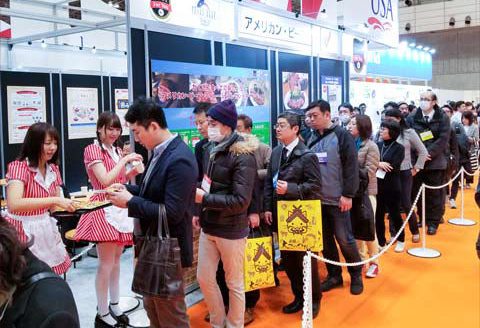Asia trade mission offers valuable market insights
A recent trade mission to Asia by the National Pork Board International Marketing Committee built lasting relationships with international customers and elevated U.S. pork as the global protein of choice. The Pork Checkoff team toured Singapore, Vietnam, Hong Kong and Macau, meeting with pork processors, distributors and retailers, importers and traders, as well as in-country staff responsible for promoting U.S. pork in the region.
“Pork is the No. 1 most-consumed protein in the world, and that was obvious on this mission,” said Bill Luckey, a pork producer from Columbus, Nebraska, and chair of the Pork Checkoff’s International Marketing Committee. “As the committee allocates Pork Checkoff dollars to international marketing, it is important to see how these dollars are working today and how we might better target producer resources in emerging markets in the future.”
With U.S. pork production again breaking records in 2018, the Pork Checkoff is committed to growing pork demand both domestically and in international markets. Singapore and Vietnam are developing markets for U.S. pork and present huge opportunities for U.S. pork export growth in the coming years. In 2017, U.S. pork exports to Singapore increased almost 20 percent from 2016, reaching $17 million. Last year, the United States also exported over $11 million of fresh/chilled/frozen bone-in hams and shoulders to Vietnam.
“Consumers in Vietnam and Singapore are rapidly increasing pork in their diets, with pork consumption on trend to overtake seafood consumption in both markets as the No. 1 protein,” said Craig Morris, the Pork Checkoff’s vice president of international marketing. “This provides a great opportunity to capture a rapidly increasing market share, but we must first understand the changing consumer and retail landscapes in these countries to meet consumer needs and expectations.”
While in Singapore, the committee learned that U.S. pork often is positioned as a premium product, with high-end U.S. pork selling for three to five times more than the price of competitors’ products. Also, pre-prepared and processed foods are becoming popular as consumers seek convenience to meet their increasingly busy, urban lifestyles.
“U.S. pork can succeed in Singapore by delivering a high-quality product packaged in small portions and in convenient, ready-to-cook formats,” Morris said.
In Vietnam, committee members learned that popular wet markets, where fresh pork is sold on the streets, are declining as consumers seek the modern conveniences of full-service grocery stores. U.S. pork is viewed as a superior product in terms of taste and quality, and it is being marketed as such by U.S. import partners and buyers, Morris noted. U.S. pork is heavily featured in restaurants throughout Vietnam, especially by those with newer, more modern menu offerings.
“It’s surprising, but Vietnam is a booming market for American barbecue,” Luckey said. “Many restaurants feature U.S. pork’s reputation for superior quality, which they promote on menus to grow their business.”
Hong Kong also remains a strategic partner for U.S. pork. According to Morris, a significant amount of U.S. pork is sold in Hong Kong then shipped to mainland China, Macau, Vietnam and other Asian markets. As a conduit to other regions, Hong Kong is a critical market, with 38 percent of all of the food the U.S. ships there, in turn, re-exported, according to Morris.
“In this challenging trade environment, it is critical that we meet with our colleagues in Hong Kong and express gratitude for their continued partnership. Building face-to-face relationships is especially important in this region,” Morris said. “We met with 40 of the largest importers who play a key role In deciding what will be sold in retail stores, featured on restaurant menus and traded with other countries in Southeast Asia.”
The last stop on the international mission was Macau, which is home to some of the world’s largest casinos. As a large tourist destination, the country offers many opportunities for U.S. pork to be showcased to consumers from all around the world.
Luckey called the Asian trade mission a great success.
“Not only were we able to see the many different ways that pork is being promoted in these countries, but we came back with insights into how to grow our market share,” Luckey said. “The committee members are excited to share these ideas with our partners here in the U.S. and to follow up with customers we met to bring U.S. pork to their shelves and menus.”
